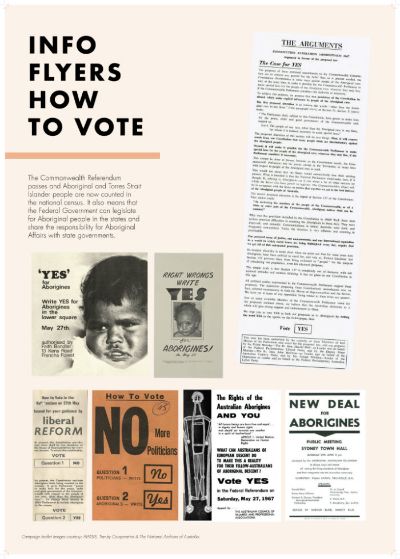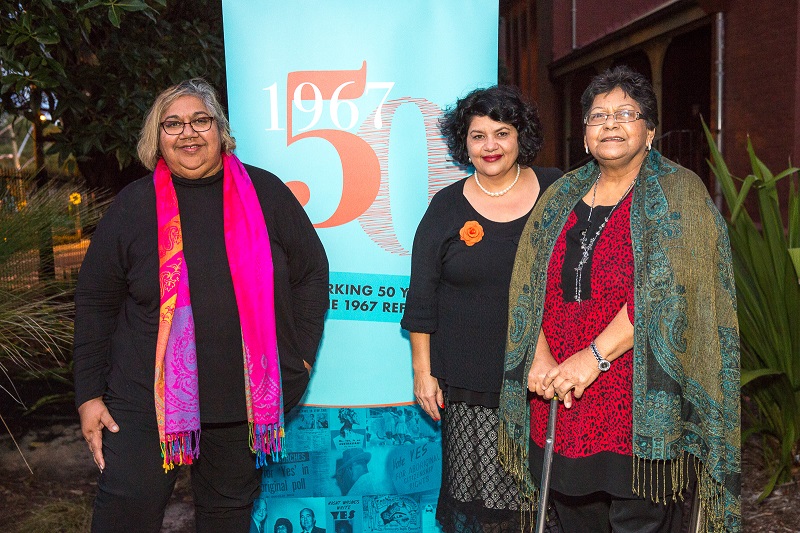On 27 May 1967, an overwhelming 90% of Australians voted ‘Yes’ in a referendum making it a high water mark for the determination of ordinary Australians to seek positive change.
The Referendum aimed to amend the constitution to include Aboriginal people in the census and allow the Commonwealth to create laws for them.
Fifty years later in 2017, NCIE hosted an event in Redfern to remember the Referendum, and the campaigners who made it happen, through stories from Aunty Shirley Peisley and Frances Peters Little, a documentary, a timeline display:1967 50, and music.
The striking and informative display boards in 1967 50 were based on research by Associate Professor Heidi Norman from UTS and images and material supplied by Tranby Co-operative. They were designed by Kristina McKinlay.

Don’t Keep History A Mystery
This year in 2018 we will display that exhibition again as part of the Blak Markets at the NCIE on the anniversary of the referendum, Sunday 27 May 2018. The exhibition will also include Frances Peters-Little’s 2007 documentary, VOTE YES for Aborigines.
The referendum anniversary marks the beginning of Reconciliation Week. As this year’s theme is Don’t Keep History A Mystery, we’re proud to be bringing this display back to present some of the history of the hard working campaigners and the events that led up to the historic 1967 Referendum.
Aunty Shirley Peisley, one of the many campaigners involved in bringing about this change and who spoke at last year’s event, highlighted the role of women in the 1967 campaign.
“I was involved with the Council of Aboriginal Women in the mid-1960’s and it was a meeting of women in Adelaide to discuss all the things that needed to be changed. They were a great inspiration to me, they were talking about things I hadn’t experienced or didn’t know about. And when you escape the experience of being told what to do, how to live, how to raise your family we were very concerned with how we could change all of that.
“The women were out, they were marching, they were the spokespeople of the community during this campaign. It really was a time when Aboriginal women were coming to the forefront. They were out talking to church meetings, setting up organisations. The women made sure they were on the trains and buses travelling to various places spreading the word.
“We took this opportunity to make these changes ourselves and I think they’re ongoing.”
Shirley Peisley 1967 Referendum Campaigner
Frances Peters Little spoke of the importance of understanding history before making judgments on the success or otherwise of the Referendum.
“It wasn’t just the day of the referendum, it was years and years of campaigning that lead up to it. Remember the political, social climate? No-one knew anything about Aboriginal people at national level. This campaign changed this country in an extraordinary way. It was a time Aboriginal people couldn’t travel from state to state, couldn’t marry without permission – that’s just some of it. There was International condemnation of treatment of Aboriginal people back in the 60’s. So if you’re going to judge the effects of the Referendum, you can’t do it in isolation.”
Frances Peters-Little: Historian and Film Director
So Don’t Keep History a Mystery, get on down to the NCIE and check out this exhibition and the Blak Markets Sunday 27 May 8am-2pm.


